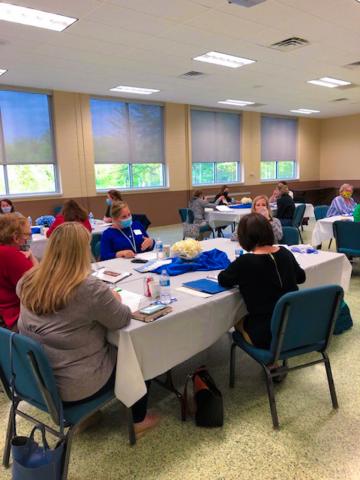
Our task, as members of the Church, is to translate Christ’s message of inclusion into practical action, so that the contribution of each member is respected and nurtured. This is our shared mission. For just as each receives the gift of the Holy Spirit through baptism, so we can grow as a church through the gifts each of us brings to the body of Christ. Active participation needs therefore, to be accessible to all.
- Valuing Difference, 1988, pastoral document of the Catholic Bishops’ Conference of England and Wales
When I read this pastoral document several years ago, the images from the Scripture story of Jesus healing the paralyzed man flooded my imagination (Luke 5:17-36). It seemed as though the friends of this man knew (or did he tell them?) of his longing to be in the presence of Jesus. They understood that he would be unable to accomplish what he desired on his own, so they offered their assistance.
However, this plan came about, the goal was accomplished; they worked around the obstacle, lowering him through the roof, thus giving him access to Jesus and the community of believers.
When our diocesan Committee for the Inclusion of Person with Disabilities initially met, we quickly learned that what we ultimately wanted was to facilitate access for all individuals with disabilities in all of our parishes, following the example set for us in Scripture. As we pursued this goal, we often found ourselves asking a very practical question. Where do we begin?
After much prayer and conversation, we realized that this endeavor could not be ours alone but must be a collaboration with individual parish communities. It was this awareness that led us to develop the role of the parish liaison. A parish liaison serves their parish as a point of contact with the inclusion committee. These individuals who would specifically act on the behalf of persons with disabilities are now a reality in our diocese.
Parish teams were contacted and asked if they might have an interest in inviting a parishioner/s to this role. Happily, we had responses from half of our parishes. The volunteers agreed to serve for three years, to attend four meetings throughout the year, and to promote advocacy and awareness. In addition to this they are encouraged to take part in education opportunities (webinars, publications and an education day) offered through the Office of Catechesis and the Inclusion committee.
Our first gathering of parish liaisons took place in May 2021. Our gathering began with prayer, a light dinner and a time for informal introductions. Committee members served as discussion leaders at their tables. Each table discussed what led them to this ministry and what excited them about their new role.
The content of the meeting included the history of how the committee came to be, goals of the committee, models of parish liaisons across the country and a sharing of current disability initiatives in our diocese. We shared resources that aid parishes to determine the needs of parishioners with disabilities, as well as bring awareness to our parish communities.
As we move forward there is a strong sense from all individuals involved that this model and the collaboration that now exists will bear fruit for individuals with disabilities, their families and our parish communities.
Mary Kaye Falcony is the Assistant Director of the Office of Catechesis in the Diocese of Evansville, Indiana.
The content contained in this post and on this site are the opinions of the individual author and do not necessarily reflect the official policy or position of the National Catholic Partnership on Disability.
© The National Catholic Partnership on Disability 2022
